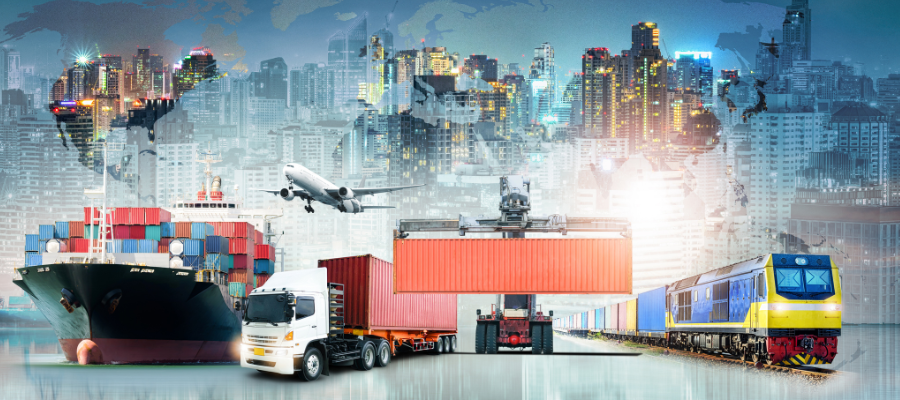🕒 Article read time: 2 minutes
Modal shift is “vital” for decarbonisation across industry, says Logistics UK

Decarbonisation is a priority across the entire logistics industry with steps being taken across transport modes to reach net zero targets, but “we really need a modal shift to make vital further emission reductions,” says Michelle Gardner, Deputy Director of Policy at Logistics UK.
Much progress is being made across the road sector with many operators either beginning or planning their transition to battery electric light commercial vehicles.
Logistics UK’s EV report – released in May 2023 – found that of the respondents who have introduced EVs into their fleets, 58% have done so in the last two years, with the majority – 62% – of all respondents stating they plan to have decarbonised their van fleets by 2030.
“However, while battery electric is widely viewed as a suitable alternative for light commercial vehicles,” says Gardner, “much uncertainty remains over the right technology solution for heavy goods vehicles (HGVs).
“Low Carbon Fuels (LCFs) offer a transitional solution for HGVs, with up to 80% reduced emissions without the need for large vehicle modifications. However, they are costly and a significant lack of necessary infrastructure acts as a barrier to uptake. Logistics UK is calling on government to urgently publish its LCF strategy to provide greater certainty on which alternative fuels to adopt.”
AIR CARGO IS CRUCIAL
While road plays a significant role in transporting goods across the UK, not all goods are imported and exported via road and as such, air cargo is a crucial sector of the logistics network.
Decarbonising the air industry is a huge challenge, but progress has begun through the use of Sustainable Aviation Fuel (SAF).
SAF can reduce lifecycle carbon emissions by 70% compared to conventional fossil jet fuel. However, challenges remain regarding its cost and availability.
“While it’s encouraging that government has implemented a mandate outlining at least 10% of jet fuel must be from sustainable sources by 2030,” says Gardner, “Logistics UK is calling on government to incentivise the production of SAF in the UK, to address both cost and sourcing challenges.”
ISLAND NATION
The UK is an island nation and 90% of everything we buy arrives at our shores by sea, ready for onwards transport via alternative modes.
“Currently, coastal shipping and inland waterways account for 15% of UK domestic freight,” continues Gardner. “These sectors provide a more efficient means of transportation for certain types of freight, particularly bulk commodities like grain, coal and petroleum products; a barge fully loaded with aggregates can replace the job of 17 HGVs. Logistics UK is calling for appropriate grants and infrastructure investment to support these sectors, as well as at major ports to improve connectivity.”
DEDICATED FREIGHT LINES
Currently, one in four sea containers arriving at UK ports is carried inland by rail. Improving port infrastructure, including options such as building a dedicated freight line at major ports, could allow congested areas to be bypassed and allow for faster and more frequent freight services.
Rail freight produces significantly lower emissions than other modes, with each tonne of freight transported creating 76% fewer carbon emissions compared to road. However, the sector currently faces capacity constraints – competing with passenger travel for space on the network – and also requires infrastructure upgrades.
To incentivise greater use of rail for both onwards travel from ports and for modal shift where possible from road (each freight train has the capacity to remove 76 HGVs from our roads) these must be addressed, alongside rapid electrification of the rail network.
“Overall progress is being made across all sectors and a multimodal approach will be vital, especially when transporting bulkier goods,” concludes Gardner.
“Logistics UK looks forward to continuing its work with members to ensure the logistics sector as a whole meets the 2050 net zero deadline.”
*www.logistics.org.uk/campaigns
Published On: 29/06/2023 12:00:00

Comments Section
If you are a Logistics UK member login to add comments.